Therien’s Take is brought to you by Cover All Exteriors, LLC. Come see what the No. 1 roofing and siding contractor in the Delaware Valley can do for the outside of your house. Call (215) 337-4868 for a free inspection. This week’s topic: playing for a new coach.
I am excited to see what my longtime buddy Rick Tocchet can bring to the Philadelphia Flyers as head coach. Having a new coach behind thole bench can mean many different things to different players. Every change behind the bench affects incumbent players in some way or another.
A new coach who has a major pedigree of NHL success can come in and do and say whatever he wants. For the first year especially, he gets carte blancehe. That’s particularly true when it’s a team than has had expectations and has not risen to the challenge of meeting them. That was the case of the Philadelphia Flyers last season under John Tortorella.
Truth be told, the Flyers probably fired Tortorella a year too late. The team quit on him in the second half of the 2023-24 season. Once that happens, it’s nearly impossible for the coach to reel it back in. There were no tears shed around the Flyers when the Flyers finally pulled the plug late last season.
New coach gets a clean slate, for a little while
Tocc came to Philadelphia with wide leeway to shape the team’s style to his own liking, and it will be up the players to execute it. He wants a high-tempo team that also pays attention to detail on both sides of the puck. It’s a great way to play, but one that has to have a lot of buy-in and accountability or it won’t work.
It’s not an NHL coach’s concern — or at least it shouldn’t be — to win popularity contests. It’s his job to win, and to get the most out of the collection of players that he’s been provided by the general manager. No more, and no less.
Even on winning teams, no coach in the history of the game has ever been universally loved by his players. There are always going to play a few who believe they should be getting more ice time. Some players are better suited to playing certain systems than others, and it’s the responsibility of every coach to put players in situations where they can succeed within the coach’s team concept.
Over the years I’ve had many coaches: some very good ones, some less so. I will just reference my time in Philadelphia because I spent essentially a decade here and our team went through six coaches.
My first coach: Terry Murray
Looking back at it, my first coach, Terry Murray, was an outstanding coach for young guys who were willing to work and to develop quickly. He was a perfect first coach for me and he really pushed me in my three years.
Murph wasn’t a fiery type of coach — rarely outwardly emotional — but he was very demanding. He made clear his expectations of preparation, consistency and discipline. Within those demands. he was good at diagnosing technical adjustments, usually subtle tweaks, that a player could make.
Above all, he spoke loud and clear through your ice time.
Terry once benched two-thirds of the Legion of Doom line. John LeClair and Mikael Renberg sat on the bench for the entire second period of a home game against Florida during my second season. That was a message directed not just at Johnny and Renny, but the whole team.
Above all, Murph taught me how to become a long-time NHL player who could gobble up heavy minutes nightly. You know when it really sank in? After he scratched me during my third year in the league. I didn’t like it one bit, but the message got through. Not long after that, I started to play some of the best hockey of my entire career, and my long-running partnership on the blueline with Eric Desjardins began; which carried over to the five subsequent coaches.
I am still thankful to Terry to this day. I appreciate all he did for my career. We came as close to the Stanley Cup under Murph as I would get in my career.
After we got swept by Detroit in the 1997 Cup Final, we had a succession of coaches with varying levels of experience.
What’s old is what’s new: The late Roger Neilson
First up, briefly, came Wayne Cashman. He is just a really great guy. Quick sense of humor, doesn’t take himself too seriously. Often had a cigar in his hand, ala Pat Quinn. But Cash had never been a head coach. He’d always been an assistant, and was probably best suited to that role.
Roughly three-quarters of the way into the 1997-98 season, we switched courses. Cashman became an assistant coach and we brought in one of the most experienced NHL coaches in the business in Roger Neilson.
Roger was an unbelievably good human being, and a pioneer in the use of video in coaching. Loved his defensive-oriented hockey and tried, with mixed results, to bring back some of the structure we had gotten away from we’d tried to open things up and freelance a bit under Cash.
We once played a home game against Washington — a 1-1 tie (remember those?) in which there might have been a combined five scoring chances all night. Each team’s single goal was scored off a weird puck-luck deflection. Afterwards, Roger declared it our best-played game of the season from an x-and-o standpoint. Unfortunately, from an entertainment standpoint, there were a lot of zzzzzzzs in the stands but Roger really wasn’t there to put on a show.
Roger understood, however, that an 82-game season was a long haul. If you had a misstep in the marathon, the focus was on correcting it so you didn’t keep stumbling. Roger was kind of like the Absent-Minded Professor of movie fame; kind of an almost bohemian type.
When Roger took very ill and was battling the cancer that eventually took his life, Craig Ramsay briefly moved from assistant coach to head coach. Rammer is another hockey lifer, and one of the nicest human beings I’ve ever met. Very bright hockey guy. Never raised his voice; didn’t believe yelling at a player or an official was an effective approach. Good teacher as an assistant coach.
Rammer’s personality is very different than Cash’s, but one thing they had in common was they were both probably best suited to the assistant coach role. Under Cash, we lost our structure that we had under Murph. Under Craig, we didn’t really have enough assertiveness and accountability.
The new coach pendulum: Bill Barger
Coaching cycle s often move back and forth like a pendulum. Now we move into the disciplinarian section of the Flyers’ coaching carousel in the fall of 2000 when Bill Barber took over. Billy was a Hall of Fame player and a Flyers lifer. Off the ice, he is a good human being with a big heart. He’s also very fiery and competitive guy. Very, very old-school in his hockey beliefs.
I’ve got scores of Bill Barber stories. Some of them are even printable if the expletives are deleted. Billy is hilarious; sometimes intentionally, sometimes unintentionally. Over the years, through hearing his distinctive voice so many times, I’ve gotten the ability to imitate his voice to a T.
Years later, when I was part of the Flyers radio broadcast team as color commentator, Tim Saunders and I were stuck without an intermission guest. So I interviewed Bill Barber, with myself as Billy. I’ll tell that story some other time.
As a player, Bill was a rare talent (as his Hockey Hall of Fame induction attests). He was a complete player, and a very hard worker. He put up big stats — and probably could have put up even gaudier ones but he cared not one bit about individual numbers. Fred Shero defined every player’s role for him, and gave his most talented players the leeway to be creative within those expectations.
Shero, for example, put a lot of explanation into what he wanted from his five-on-five systems. In fact, Shero was one of the first NHL coaches to even have systems as they’d be defined and understood in the sense of today’s times. It was one of the many ways that Shero was innovator.
When it came to the power play, however, Shero had no system at all. He put out his most talented players and allowed them to figure things out on their own.
That rubbed off on Billy. As part of the famous LCB line with Bob Clarke and Reggie Leach and along with the extremely talented Rick MacLeish, Bill was a mainstay on the power play power in the Shero years until the Pat Quinn era.
As a coach, Billy didn’t believe in spending much practice time on the power play. He wanted his best offensive guys to just figure that aspect out on their own, just as he and his top teammates did with a lot of success in the ’70s and early ’80s. But the later generation of players weren’t really used to self-diagnosis. They were used to getting direction.
That carried over to other things. Billy coached from the framework of his playing experiences and from what worked for him under the coaches he’d played for and admired the most. As a player, he was fueled by his emotion, intensity and work ethic on top his talent. His career was cut short by injuries but his style worked very well for him.
As a coach, Barber was the same way. He was all about compete level, work ethic and playing with pride. His style wasn’t much like Shero’s, from what I know of the legendary coach, but it was influenced by what had worked for the team and for him as an individual player.
From what I know of Shero, he was very quiet by nature personality wise. Billy was a lot more demonstrative; a bit like Pat Quinn. He was very quick to give the team a kick in the butt or a pat someone on the back.
As much as he might yell, Billy had a personal policy of never throwing any of his players under the bus in front of the media. He’d always deflected praise in public to his players but take blame on himself to the press. I appreciated that.
Things clicked with Billy and our team his first year. We turned things around after a team had a so-so start. After winning a Calder Cup championship in the AHL with the Philadelphia Phantoms in 1998, Billy won the Jack Adams Award in the NHL with us in 2000-01.
Year two was a lot rockier. I had some fun with Billy’s fire and brimstone ways — and I kept on playing a lot of minutes, so that no doubt played into why I enjoyed playing for him — but there were others who wanted something different.
If he couldn’t bitch, he wouldn’t be Hitch
Enter Ken Hitchcock, with a whole lot of leeway to overhaul the system to his preferences and coach our veteran-oriented group as he saw fit. It was interesting, to say the least. I can safely say my first year under Hitch was a trial.
Hitchcock was not exactly one of the warm-and-fuzzy types of coaches. I found it tough to play for him for awhile. In fact, that was the experiences for many veterans. Jeremy Roenick once said of Hitch, after we shut out Pittsburgh one night (during the period of time when the Pens were at the bottom of the league) and the head coach picked apart every mistake rather than saying anything positive about how we played, “If he couldn’t bitch, he wouldn’t be Hitch.”
Funny, and true.
Hitch came to a veteran-laden team in 2002. He brought along a shiny 1999 Stanley Cup championship ring from the Dallas Stars. We had a pile of veteran players in Philadelphia who had come close with the Flyers to winning the Cup but hadn’t taken that final step. Hitch was not afraid to let us know he had coached a Stanley cup champion.
Here’s the thing, though: We had no choice but to buy in. As Flyers, we’d never gotten to the game’s ultimate level. In comes a coach with the pedigree of having done so. That matters, big time.
Players respect what Tocchet brings
A new coach with a pedigree that inherits a veteran team can sometimes be very difficult on his incumbent vets. He may even isolate one or two veterans to make examples out of and try to send an immediate message across-the-board that it’s his way or you don’t play.
Any coach with that sort of pedigree has earned the right to do that in his first year behind the bench with the new team. Honestly, the guy would be foolish to not use that leeway. That’s the reason he was hired in the first place.
Yes, a veteran coach can be difficult for a group of stubborn players as he shakes you out of your comfort zone. But if you addressed the game the right way and you play the game the right way you are going to have success because having a coach.
This is what being a professional is about: You have to understand exactly what your coach’s need is for you.Grasping that makes your job much easier. For all the griping that Ken Hitchcock did about me — not just one-on-one, but through the occasional silent treatment paired with planting things with the media — I kept on playing a lot of minutes.
What did that tell me? It told me that I was still one of the players he relied on. Remember, at the end of the day, ice time speaks louder about trust level than anything else.
Getting back to present day, the current Flyers group needs to respond to Tocc. I look forward to the next step in this journey. We’ll see how this group will either look the same or look different by the second half of this season year.
Winning hockey games will keep the status quo in the lineup. Losing games will certainly make the coach reconsider his moves and what alterations he feels is needed for the best of the team.
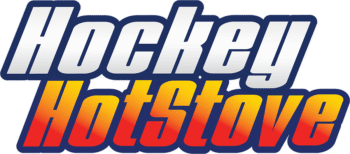
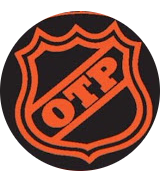
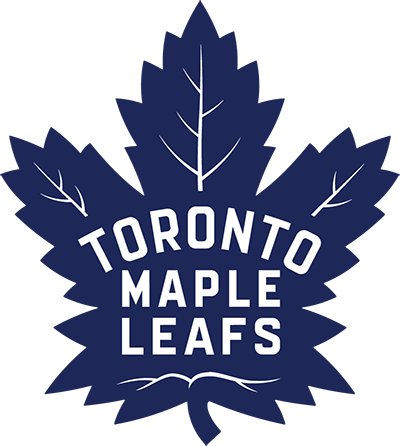
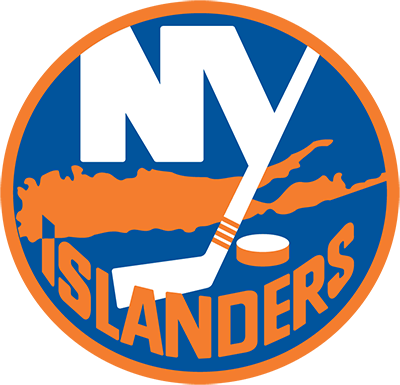
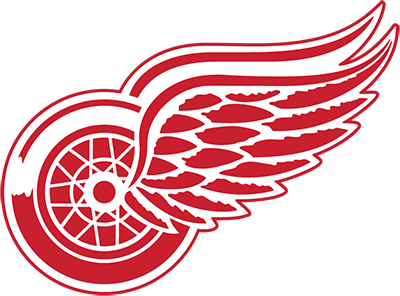
Good read.
..and yes . I do remember ties! ????????????
Yes,
Agree, good read and from someone who has been there